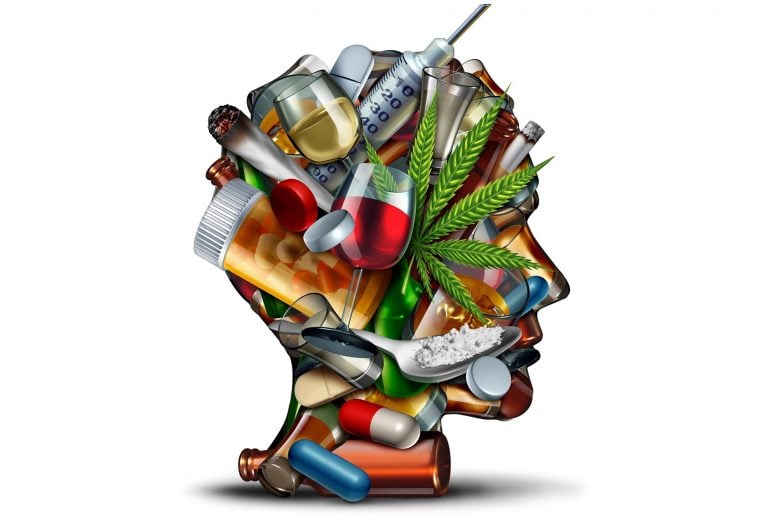
According to a new systematic review and meta-analysis, people who use cannabis are disproportionately more likely to initiate opioid use and engage in problematic patterns of use compared to people who do not use cannabis.
The idea that cannabis is a ‘gateway drug’ to more harmful substances such as opioids is controversial, yet has substantially impacted drug policy, education, and how we conceptualize substance use. A new systematic review and meta-analysis has found that people who use cannabis are disproportionately more likely to initiate opioid use and engage in problematic patterns of use than people who do not use cannabis. But the quality of the evidence for this finding is low.
One surprising discovery in this meta-analysis, led by researchers at the University of Sydney’s Matilda Centre for Research in Mental Health and Substance Use and published by the journal Addiction, was that there aren’t many good studies on the gateway drug theory. Despite the frequency with which the topic of gateway drugs is discussed, only six studies were of high enough quality to include. A synthesis of the evidence from those six studies demonstrated that people who use cannabis are more than twice as likely to initiate opioid use and develop problematic patterns of use than people who don’t use cannabis.
But the quality of the evidence in those studies is low and must be interpreted with caution. All six studies had a moderate risk of bias and overlooked important confounding variables such as cannabis use frequency and affiliation with cannabis or opioid-using peers. It is unclear whether these unmeasured variables would have had a strong enough impact to explain away the cannabis-opioid use relationship.
It is therefore not possible, on the existing evidence, to state conclusively that there is a causal relationship between cannabis and subsequent opioid use, but it is likely that there is at least a partial causal relationship.
The six studies provided data from the United States, Australia and New Zealand between 1977 and 2017, with a total sample of 102,461 participants.
Reference: “Weeding out the truth: a systematic review and meta-analysis on the transition from cannabis use to opioid use and opioid use disorders, abuse or dependence” by Jack Wilson, Katherine Mills, Tom P. Freeman, Matthew Sunderland, Rachel Visontay and Christina Marel, 15 July 2021, Addiction.
DOI: 10.1111/add.15581
Funding: Australian National Health and Medical Research Council, University of Sydney’s Matilda Centre for Research in Mental Health and Substance Use, University of Sydney, Society for the Study of Addiction









You have to be careful with limited studies. For instance, most of us drank milk of some sort as infants. Some of us go on to take, say aspirin. Does this mean that drinking milk leads to aspirin use? When I was a lassie on ER service we set up an experiment to demonstrate the limits of thinking that correlation equals causation. The study: half a group of people with fever were given aspirin and half were given PCN. Both saw their temperatures decline. Penicillin is not an antipyretic or anti fever medicine but based on the experiment it might look like it was. Yes. In short order both had both ASA and PCN for their pneumonias and both groups did fine.
I started smoking cannabis in 1965 and was NEVER tempted to use opioids. Ever. I admit to having tried smoking heroin in around 1969 and I HATED IT. I never understood why some people liked its effects. My aims were to experience a heightened consciousness, not to be knocked out. Bonnie’s comment above is pertinent and I agree with her.
Cannabis legalization is associated with fewer opiate overdose deaths, and fewer opiate prescriptions in the state of legalization. The decrease are always seen after cannabis becomes not just legal, but easily available.
https://www.sciencedaily.com/releases/2019/08/190807092350.htm
https://www.health.harvard.edu/blog/access-to-medical-marijuana-reduces-opioid-prescriptions-2018050914509
I’m not 100% sure about this article because there are errors that don’t match my experience, I love CBD perparrata the most, but I couldn’t find my favorite market 🙁 can someone advise me?
I have one of these and use it all the time. If you are wondering how it was for me when it was advised to me, a friend of mine recently came to me and told me about Aifory.com and I really liked it because I just started to get interested in this topic. And I can tell you with full confidence it’s worth it! So don’t miss your chance.